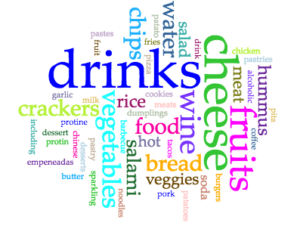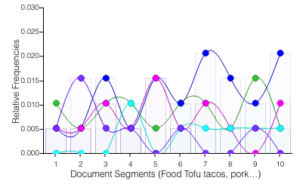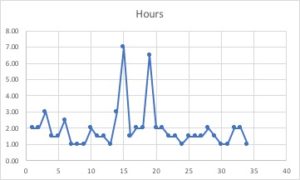In The Googlization of Everything, the author raises an intriguing issue: the googlization of memory. In this chapter, the author discusses a very important issue that is difficult to notice – the importance of forgetting things. There are several examples about how forgetting plays a more significant role than remembering to human beings in spite of the efforts they have spared to remember things all through history. They all demonstrate that in an age of information explosion, where “the scarcity has become plentiful”, it is more important to learn how to filter out what might become a burden to our thinking and our mind and forget about it, because or we will get lost in the ocean of details and feel overwhelmed and anxious. As a long time sufferer of anxiety issues, I have tremendous experience in not being able to forget things – things that hurt me in the past and left trauma in my sensitive memory. It is the inability to forget the past that impinged my ability to focus on the present. I kept seeing triggers of my traumatic experience and they were constantly exaggerated by my memories and my mind. Finally, unable to cope with such disorders, I turned to therapists and psychiatrists for help. Through medicine and training, I made tremendous improvement in focusing on what’s important in life.
Even worse, we will lose the ability to take in anything new into our minds if we do not know how to properly forget. The author gives the example of his grandfather who does not have any mental space for new things because the memory of the past has been rooted too deep in his mind. Therefore it is more than necessary to train, or “discipline” our minds to choose and select what is useful for us and filter out what is not. In addition, it is important to forget because unforgotten information has the propensity to be “misused and abused”. Seemingly minor details can “come back and haunt us” in ways we would never expect.
Indeed, it is of great importance to forget than to remember in such an information age where an abundance of information is accessible to us through tools such as google. But the key questions here is: what should we remember and what should we forget? Who can decide it and how it can be decided? According to the author, in an age of googlization, Google does it for us. As the author says, it opens up an abundance of information to us and filters out even more. What we need to learn is how to keep our judgement and work with Google to make the optimal choice. The author says although google makes it easy to both forget and remember things, he is the one who “choose(s) what elements to remember and comfortably ignore the rest”. “What matters is how we choose what to consider in our daily judgements and choices”.
However, the author also mentions that it should be cautioned that google is doing this for us-the right to decide what to take into our mind and what to filter out transfers from our parents and other adults to google. However, do we really know how google does this? What is filtered out for us by the algorithms and what, in the information that is filtered out, is valuable to us? Should we just easily transfer this right to google? In other words, is google reliable and capable of assuming the role that used to be played by the parents and perhaps should be played by ourselves? In education, how do we teach students what to remember and what to forget? Although teacher are usually taught in teacher training classes that they need to ask students to critically filter and interpret the information. It’s hardly clear what those required skills are and how to teach them. The author says in “It feels somewhat liberating that I don’t have to remember to remember very much”. All through my education in China, it is filled with memorization of everything. It is hard to transition into this new mode of learning and teaching mode in the Information Age, where an abundance of information makes me feel nervous and intimidated when I read. I don’t know how to select or filter when faced with tons of readings because I have developed the habit of reading everything very carefully for meaning behind the text. To adapt to the new trend requires special and step-by-step training.




